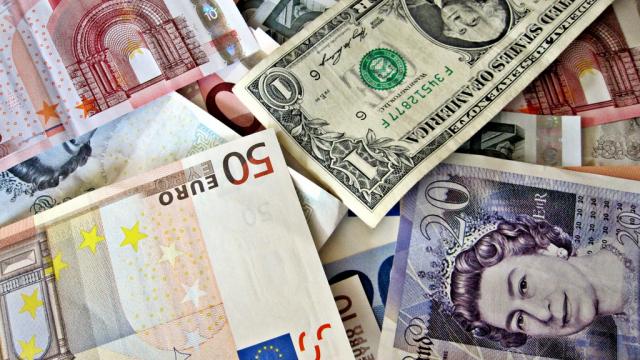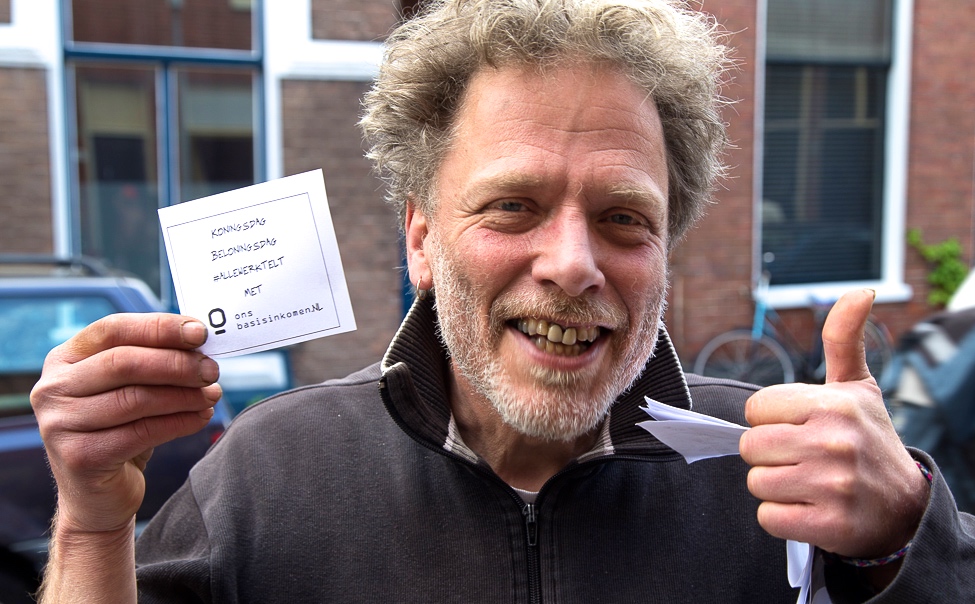
This is the last installment in a three-part series examining new economic alternatives. Read the first and second parts.
The relationship between money and work seems increasingly defunct. Oxfam suggests a third of the richest people on the planet inherited their money, and soon the richest 1% will own more than everyone else. Meanwhile, vital jobs that prop up society (and with it, the capitalist system) go virtually unpaid – care-giving and childcare to just name two.
And since the Great Recession, "job-seekers" are increasingly expected to fill in paperwork and jump through bureaucratic hoops in order to receive state money while seeking work that is frequently not there.
Guy Standing’s Precariat Charter explains how people nowadays often work for nothing or next to nothing – doing, say, zero-hour contracts. It describes the growing precarious class, who lack the honest job-for-lives exchange available to former generations and frequently don't work in roles that utilize their potential. To redistribute the wealth, Standing proposes establishing a basic income: unconditional money paid to everyone by the state.
Echoing these ideas, the Netherlands is seeing a revolution around money that is already getting underway, as the Dutch seek trial schemes that include basic income principles. The plan complements ongoing Parliamentary discussions inspired by citizen pressure to created positive money. That is, when society makes money for the public good rather than the banks creating money as public debt.
Of the 393 municipalities in the Netherlands, 10 to 15 of them are working on plans for a basic income-inspired trial, with some planning to start next year. Interest is emerging in another 40 municipalities, including all of the country's largest cities. This means a large portion of the Dutch population will witness, and many will directly experience, this trial.
Holland's fourth largest city, Utrecht, made global headlines as one of the nation's earliest municipalities to announce the trial. But Sjir Hoeijmakers, speaking to Occupy.com, explained there are misconceptions about what Utrecht plans and doesn't plan to do.
“It is not a fully-fledged trial of basic income, instead some basic income ideas will be added into social security," said Hoeijmakers, who works independently coordinating the different municipalities on a national level. "But it is also far more ambitious, as so many municipalities are trialing innovations connected to basic income.”
Hoeijmakers said the municipalities are framing their experiments differently. In some places it is called a "trust experiment" – setting itself opposite the current system, based on distrust, where the state tries to catch people out. Other places are using titles like "What works best?" as they test the performance of current social security measures against ones that are less conditional and avoid a poverty trap.
Because the term "basic income" is viewed controversially, many of the trials aren't using those words even as they push basic income features. In practice, those currently receiving social security benefits will instead be paid a non-means tested sum, without further obligations. Single-person households will receive around €950 ($967), with more going to families with children. Recipients will have enough to live on – but unlike basic income, not everyone will receive all of the money in the initial stages.
The basic income concept has received consistent support across the political spectrum in Holland, said Hoeijmakers, which is why it is now being packaged in different ways to see what works best. Most of the major Dutch political parties, with the exception of the conservative-liberal People's Party for Freedom and Democracy, in some way support the scheme. Even with that party, he said, "they don’t like the idea of ‘free money,' but they will get on board if you call it ‘negative income tax.'"
The basic income experiment is also receiving widespread support across Dutch civil society, from academics to councilors and from social campaigners to entrepreneurs. Hoeijmakers said the majority of people now endorse it – and that the financial crisis, rising unemployment and an increasing discussion of job automation helped spark the public's willingness to innovate.
An article written two years ago by Rutger Bregman, "Why we should give free money to everyone," had particular impact, presenting successful basic income trials around the world and showing a range of positive social impacts, including saving the state money through reduced bureaucracy. The article paved the way for a popular TV series, Bergman's celebrated appearance as a TEDx speaker, and his recently released book, "Free Money for Everyone."
Bregman’s commentary seems to have shone the way to the present, as basic income and similar schemes move from the fanciful and abstract to the real and present. For Hoeijmakers, it is ground-breaking that an idea once as radical as this one is now being pushed from the municipal to the national level. He said it represents a seismic shift in the way people think about money and what it is for.
"Basic income is not just about money, it is about security and enabling people to pursue what they want, to reach their goals, to live with the freedom to organize their lives," he said, "so they can do what they are good at and contribute to society.”
3 WAYS TO SHOW YOUR SUPPORT
- Log in to post comments


















